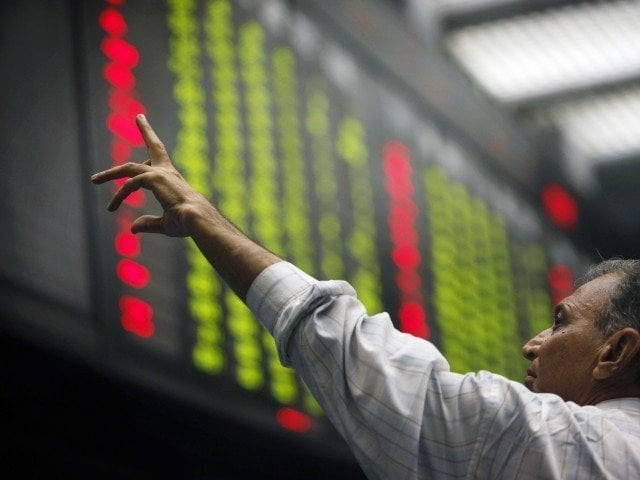Pakistan upgraded to MSCI Emerging Markets Index
Result part of May 2017 Semi-Annual Index Review, decision to be effective from June 1, 2017

The KSE-100 Index has seen a positive run in the last few sessions. Photo: Express
MSCI, a leading provider of international investment decision support tools, announced the changes to its indexes as a result of its May 2017 Semi‐Annual Index Review, including upgrading Pakistan as an emerging market from a frontier market status.
Market watch: KSE-100 ends shy of 52,400, gains over 600 points
“The MSCI Pakistan Indexes will fully converge with the MSCI Provisional Pakistan Indexes, effective June 1, 2017,” said the press release issued early Tuesday morning. “There will be no additions to and ten deletions from the MSCI Pakistan Index. There will be eleven additions to and six deletions from the MSCI Pakistan Small Cap Index.”
As per the decision, six large-cap stocks will now be part of the MSCI Pakistan Index with effect from June 1, 2017.
- Oil and Gas Development Company
- Habib Bank Limited
- United Bank Limited
- Lucky Cement
- MCB Bank
- Engro Corporation
Additionally, 27 small-cap stocks were included into the MSCI Pakistan Index.
- Bank Alfalah
- Engro Fertilizers
- Fauji Cement
- Fauji Fertilizer Bin Qasim
- Fauji Fertilizer Company
- Ferozesons Laboratories
- Honda Atlas
- Hub-Power Company
- IGI Insurance
- Indus Motor Company
- International Steels
- DG Khan Cement
- Kot Addu Power Company
- Maple Leaf Cement
- Millat Tractors
- National Bank of Pakistan
- National Refinery
- Nishat Mills
- Packages
- Pak Elektron
- Pak Suzuki Motor Company
- Pakistan Oilfields
- Pakistan State Oil
- Searle Pakistan
- Shell Pakistan
- Sui Northern Gas Pipelines
- Thal Limited
Many global institutional investors use different MSCI indexes – such as frontier, emerging, China and US markets – to create balanced portfolios to generate maximum returns while keeping in view their overall risk appetite.
Market watch: KSE-100 increases another 965 points
MSCI’s decision to upgrade Pakistan from the Frontier Markets status is also expected to generate inflows of global portfolio investment in the range of $200-500 million, according to JS Global Research.
The euphoria
Excitement over Pakistan's return to the MSCI EM has helped the KSE-100 increase 8.6% this year alone, with political uncertainty over the Panama case verdict holding back a greater increase. Since the verdict announcement on April 20, the KSE-100 has increased over 10% with most analysts and brokerage houses saying that the bullish run is likely to continue.
In calendar year 2016, Pakistan was the top-performing market in Asia with a 46% return.
Currently, the KSE-100 is positioned at its all-time high of 52,387.87 points despite the fact that foreigners have been net sellers of over half-a-billion dollars since June last year. With the official reclassification, most analysts note, the outflow is likely to reverse.
Pakistan Stock Exchange: MSCI upgrade revives foreign investor interest
Pakistan was part of the MSCI EM Index between 1994 and 2008. However, the temporary closure of the then Karachi Stock Exchange in 2008 led MSCI to remove it from the index and classify it as a “standalone country index”. MSCI then made Pakistan a part of the Frontier Markets Index in May 2009.



















COMMENTS
Comments are moderated and generally will be posted if they are on-topic and not abusive.
For more information, please see our Comments FAQ